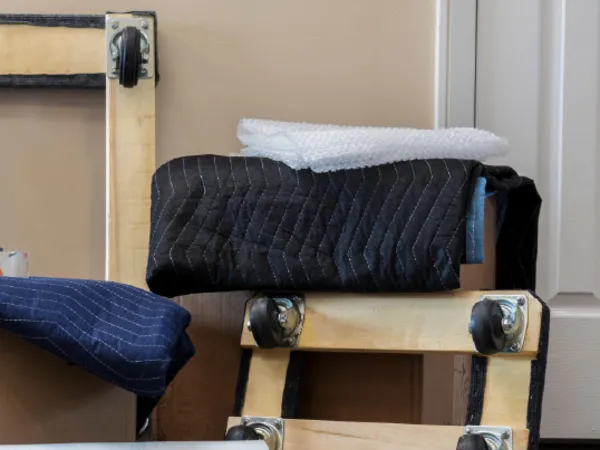How Long Does It Take To Pack?
Packing takes time. Here’s how to plan for it.
Packing is one of those tasks that always takes longer than you think it should. Before starting, it’s easy to believe you can knock it out in a weekend. But then you remember the kitchen full of pans and dishes you still need to use. And the kid’s room full of toys they’ll want to play with until moving day. Suddenly, this straightforward task gets a little more complex.
So, when should you start on each room? And how much time should you block off to get it all done?

Build a personalized packing timeline
Get a custom packing plan in three simple steps:
1. Calculate the time needed to pack
Start with the total hours needed based on the size of your home:
| Home Size | Time needed to pack |
|---|---|
| Studio/1 bedroom apartment | 10-20 hours |
| 2-bedroom home/apartment | 20-40 hours |
| 3-bedroom home/apartment | 40-60 hours |
| 4-bedroom home | 60-80 hours |
| 5+ bedroom home | 80-100+ hours |
Adjust the time by considering the amount of stuff in each room (more stuff = more time) and add 3-5 hours for storage buildings, basements or attics.
If family or friends are helping with the move, divide the total hours by the number of people. For example, two people can do 40 hours of packing in 20 hours. If you’ll only have help part of the time, subtract the time they can help from the total packing hours.
2. Know when you’re available
Going to dinner with friends before the move? Have an event you committed to months ago? Write it down so you know how many days are free for packing. Then, think through your normal routine (plus all the other tasks on your moving checklist) and block off any time those things will require.
3. Create a realistic schedule
With your total packing hours calculated and everyone’s availability in mind, it’s time to build the schedule. Start with the end date (we recommend finishing the day before the moving equipment is dropped off), then divide the total packing hours by the number of days or weeks you have available. For example, if you need 40 hours to pack and have four weeks, you’ll need to pack about 10 hours per week.
Distribute those hours across the available days, adjusting for your schedule.
To help stay on track, assign specific tasks to each week based on priority:
Early Weeks: Pack non-essentials like seasonal items, décor and rarely used rooms.
Middle Weeks: Focus on larger areas like bedrooms, closets and the kitchen.
Final Week: Pack daily essentials and last-minute items.
Having a clear, personalized timeline will help you go from planning to fully packed before you know it!
Want more packing tips?
Check out the U-Pack® complete guide to packing to learn how to handle all parts of the process.
More articles you might like...



